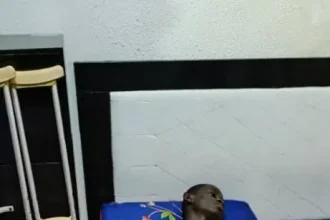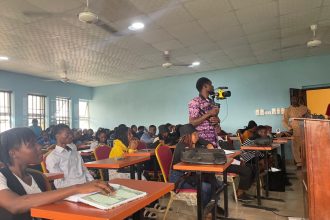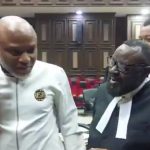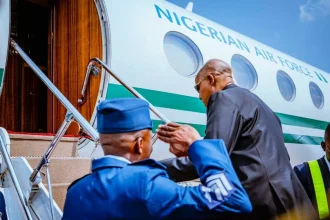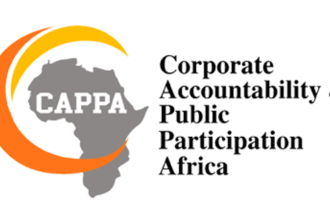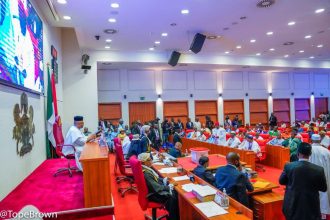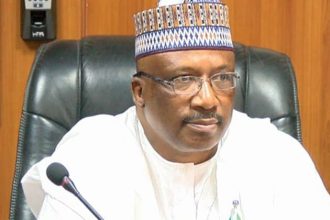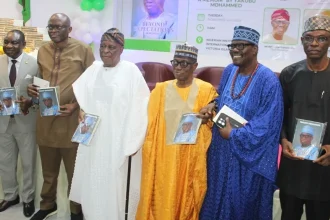By Jonathan Lois
The House of Representatives Ad Hoc Committee investigating oil spill remediation projects and the Hydrocarbon Pollution Remediation Project (HYPREP) has raised serious concerns over alleged financial irregularities, questionable contract awards, and poor documentation in the execution of the Ogoni clean-up exercise in Rivers State.
During a heated session at the National Assembly, members of the committee confronted HYPREP officials with evidence suggesting that about ₦100 billion worth of contracts were awarded to 39 companies in 2022 without approval from the Bureau of Public Procurement (BPP) or the Federal Executive Council (FEC).
The committee, chaired by an unnamed lawmaker, expressed shock that the contracts—each averaging about ₦2.5 billion—were granted through what the agency described as selective tendering, without open competition or proper evaluation of the contractors’ qualifications.
“We have evidence that 39 companies were issued letters of award for ₦2.5 billion each, amounting to ₦100 billion in total,” one visibly angry member said. “These awards did not pass through due process, and no BPP or FEC approval was obtained. This is completely unacceptable.”
The committee demanded that HYPREP provide comprehensive documentation showing the names of all the companies, their directors, technical qualifications, and justification for their selection.
Advance Payment Guarantees under Scrutiny
Lawmakers also faulted the agency’s financial reports, which contained only details of Advance Payment Guarantees (APGs), without evidence of subsequent disbursements or completion levels of the projects.
“You listed the contractors, job titles, and APGs,” a committee member noted. “Does this mean that after the advance payments, no other payments were made to these companies? Even for projects marked as completed, there is no record of how much has been paid.”
The HYPREP Project Coordinator, Prof. Clement Gimu, admitted that while some payments had been made, the documentation was not fully compiled. He pledged to provide complete records at the next sitting, but lawmakers described the response as unsatisfactory.
The committee insisted that all payment details — from initial advances to final disbursements — must be submitted in certified form before the next hearing.
Missing Signatures and Questionable Documents
The investigation took a tense turn when the committee discovered that several financial and audit documents submitted by HYPREP lacked official signatures. Lawmakers demanded an explanation for what they described as “gross administrative negligence.”
“When you supplied unsigned documents to this committee, what was your intention?” the chairman asked. “You cannot come before the House of Representatives with unauthenticated records and expect to be taken seriously.”
An attempt by one HYPREP officer to withdraw the unsigned documents was rejected by the lawmakers, who reminded the officials that they had already taken an oath before the committee. “Once you have sworn an oath, the documents you presented are binding,” a member stated. “You cannot re-hide or alter them.”
Missing Bank Statements and Auditor-General’s Involvement
The committee also faulted HYPREP’s failure to provide bank statements, general ledgers, and project-specific budgets, with the agency claiming the documents were in the custody of the Office of the Auditor-General of the Federation.
Chairman of the committee dismissed the explanation, insisting that every responsible agency must keep duplicate financial records. “Are you saying you handed over all your original documents to the auditors without keeping copies?” he asked. “That is completely unprofessional and raises suspicion.”
He directed the agency to produce its bank statements, cash books, and all supporting documents relating to project finances within one week. “This is public money,” he said. “You cannot operate in secrecy when Nigerians are demanding accountability.”
Lawmakers Emphasize Accountability
Members of the committee reminded the officials that the Ogoni clean-up was a landmark environmental intervention rooted in years of struggle and sacrifice by the people of the Niger Delta.
“This project is being watched globally,” one member remarked. “It represents justice for a people who suffered pollution and neglect. The money released for it must not be squandered through opaque processes.”
The committee noted that despite earlier requests for documentation, HYPREP had yet to provide complete financial details. “We wrote to you on August 27 asking for all documents,” a lawmaker said. “Weeks later, we are still asking for the same thing. This is unacceptable.”
Minister to Appear Before Committee
To ensure a full understanding of the issues, the committee resolved to summon the Minister of Environment to appear before it on Tuesday, October 28, 2025, alongside officials of the Bureau of Public Procurement and the Federal Ministry of Finance.
The chairman said the invitation would allow the committee to “get to the root of the matter” and clarify the processes behind the controversial contracts.
“This is not a witch-hunt,” he said. “Our duty is to uphold transparency and ensure that public funds meant for environmental remediation are properly accounted for. We will not rest until the truth is established.”
He warned that any official who failed to cooperate with the investigation could face sanctions for contempt of parliament.
Next Steps
The committee adjourned its sitting to October 28, directing HYPREP to submit all outstanding documents, including:
Complete list of awarded contracts and payment history;
Approval letters from BPP and FEC;
Bank statements and audited financial reports; and
Proof of project completion and evaluation.
“We will continue to dig until we find the truth,” the chairman said. “The Ogoni clean-up must not become another failed national promise.”
END





